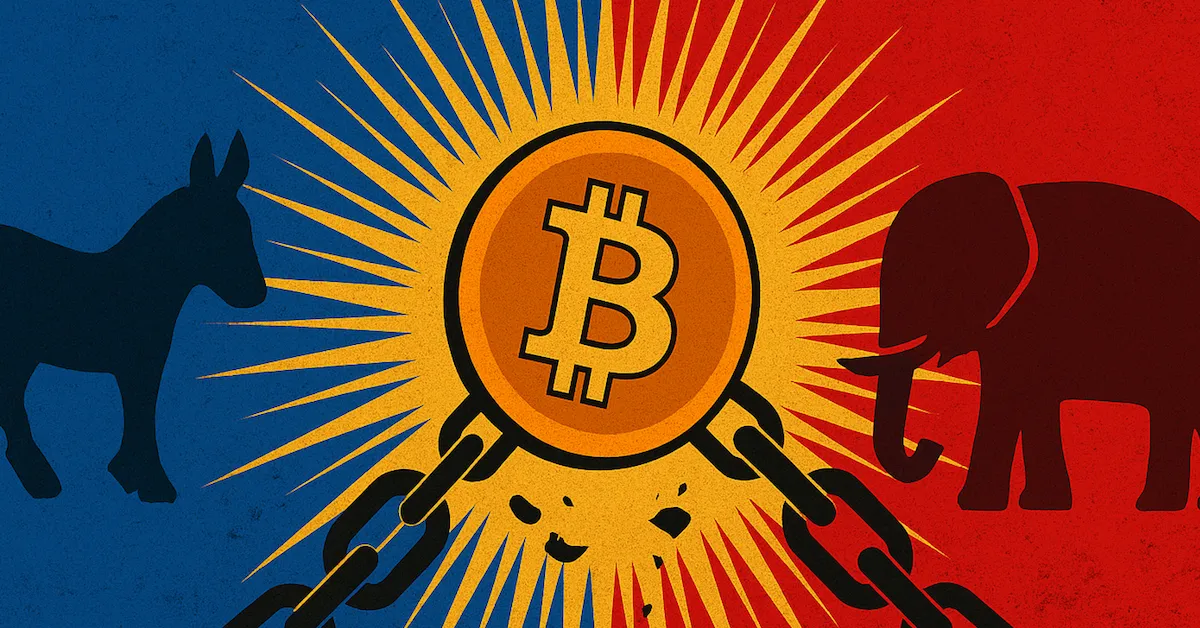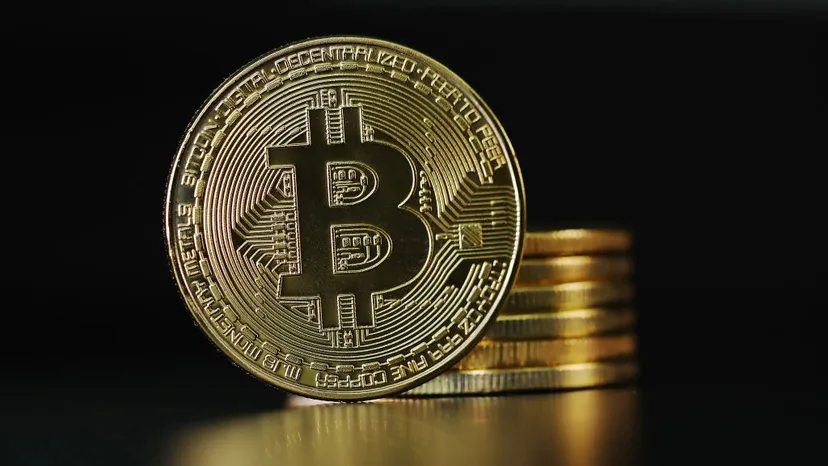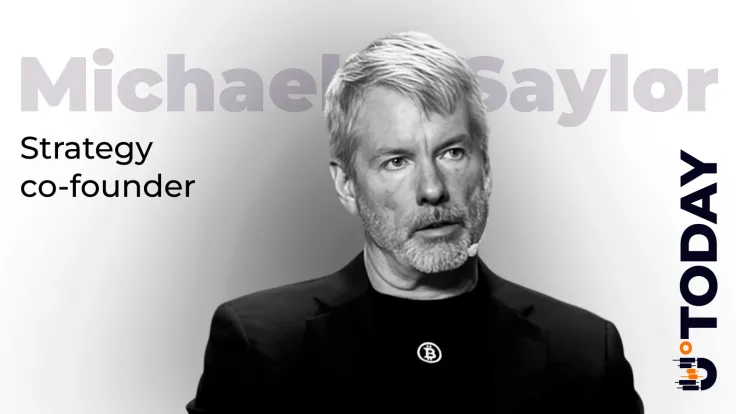Bitcoin Rises Above Politics: A New Era for Human Rights

Bitcoin often faces concerns from individuals with left-leaning ideologies, who perceive it as a capitalistic tool. This perspective, highlighted by an interview with Harshvardhan, an MIT Bitcoin Club alumnus, stems from Bitcoin’s frequent association with the Trump administration in the U.S. and mainstream media coverage predominantly focusing on its price fluctuations. Consequently, the broader public rarely encounters narratives about Bitcoin's profound impact on human rights, financial inclusion, freedom to transact, and protection against inflation.
A compelling demonstration of Bitcoin's role in financial inclusion is unfolding in Kibera, Africa’s largest informal settlement in Kenya. Through the dedicated efforts of Afribit Kibera, residents are receiving education on Bitcoin usage, consequently integrating Kenya's most impoverished and financially vulnerable populations into the digital economy and enabling them to save for the first time. The BBC recently featured this impactful work. A crucial aspect often overlooked is that many Kibera residents are refugees, lacking national IDs, which disqualifies them from using M-Pesa, Kenya's prevalent digital payment system. However, by utilizing a non-custodial Bitcoin Lightning wallet in conjunction with Tando, a local Kenyan app facilitating Bitcoin payments with Kenyan Shilling settlement, these individuals can actively participate in the digital economy without requiring Know Your Customer (KYC) checks.

The freedom to transact, often taken for granted in Western nations with established digital payment systems like PayPal or CashApp, is a critical concern for activists and dissidents globally, particularly under authoritarian regimes. These individuals frequently experience the freezing or closure of their accounts when they voice opposition. Debanking has become a common tactic for authoritarian rulers, exemplified by the Putin regime's shutdown of Alexei Navalny's Anti-Corruption Foundation's bank accounts. Even in supposedly democratic nations, this phenomenon exists; for instance, the U.S. Biden administration's "Operation Choke Point 2.0" debanked numerous Bitcoin and crypto companies, seemingly due to political disfavor. This illustrates that even private banking and fintech institutions can be pressured by governing powers, regardless of their democratic status, to restrict transactions. Lyn Alden, in her book "Broken Money," emphasizes Bitcoin's significance in this context, stating that "self-custodial financial services force governments to actually charge people with a crime before they can use pressure to freeze their accounts." Alden argues that Bitcoin transcends political divides, as its utility becomes apparent when one considers a future political landscape led by less favored politicians.
Furthermore, Bitcoin offers a vital safeguard against inflation, a concept often misunderstood by those unfamiliar with its inherent scarcity. With a strictly capped supply of 21 million units, Bitcoin starkly contrasts with fiat currencies, which can be printed indefinitely, leading to the devaluation of citizens' time and labor. While the U.S. dollar, often considered relatively stable, has still experienced notable inflation, many other global currencies face far more alarming rates of debasement, as seen in countries like Venezuela, Lebanon, Argentina, and Turkey. Sabina Waithira, co-founder of Tando, actively educates university students in Kenya about Bitcoin's ability to provide freedom from inflation, high fees, and foster an open financial system. This freedom is particularly pertinent in Kenya, where the national currency has experienced annual inflation rates as high as 14% since the mid-2000s.
Ultimately, Bitcoin, as an open protocol not controlled by any single entity, is inherently politically neutral. While the Trump administration's pro-Bitcoin stance may alienate some on the political left, it does not diminish Bitcoin's capacity to facilitate causes often championed by liberal ideologies, such as financial inclusion. For those whose politics align with liberal thought, resources like The Progressive Bitcoiner nonprofit and Jason Maier’s "A Progressive’s Case for Bitcoin" offer valuable perspectives. Similarly, for individuals who prioritize human rights facilitated by Bitcoin but feel politically unaligned, the Human Rights Foundation's Financial Freedom division and its newsletter provide crucial insights. Bitcoin stands as a powerful tool for all humanity, bridging the political spectrum, and it is imperative that this message achieves broader recognition.
Recommended Articles
Crypto Giants Unite: Nakamoto Inc. Acquires BTC Inc. & UTXO Management

Nakamoto Inc. (NASDAQ: NAKA) has completed its acquisitions of BTC Inc. and UTXO Management GP, LLC, finalizing merger a...
Bitcoin's Epic 50% Plunge: Is it a Quantum Attack or Market Rebalance?

Bitcoin's recent 46% decline has ignited a debate, with some citing quantum computing fears and others pointing to shift...
Goldman Sachs CEO Sparks Fury: 'Crypto Rebels' Advised to Relocate to El Salvador!

Goldman Sachs CEO David Solomon has delivered a sharp message to crypto advocates: adhere to U.S. financial regulations ...
Crypto Winter Confirmed: Saylor Sounds Alarm on Market Downturn

MicroStrategy's Executive Chairman Michael Saylor confirmed on Fox Business that the digital asset market has entered a ...
Milo's Monumental Leap: $100M in Crypto Mortgages & Record Home Loan

Milo, a Miami-based fintech firm, has surpassed $100 million in crypto mortgage originations, demonstrating a significan...
Al Warda Investments Expands Bitcoin Exposure Through BlackRock ETF

Al Warda Investments, an Abu Dhabi-based firm under Mubadala, significantly increased its bitcoin exposure through Black...
You may also like...
Super Eagles Fury! Coach Eric Chelle Slammed Over Shocking $130K Salary Demand!
)
Super Eagles head coach Eric Chelle's demands for a $130,000 monthly salary and extensive benefits have ignited a major ...
Premier League Immortal! James Milner Shatters Appearance Record, Klopp Hails Legend!

Football icon James Milner has surpassed Gareth Barry's Premier League appearance record, making his 654th outing at age...
Starfleet Shockwave: Fans Missed Key Detail in 'Deep Space Nine' Icon's 'Starfleet Academy' Return!

Starfleet Academy's latest episode features the long-awaited return of Jake Sisko, honoring his legendary father, Captai...
Rhaenyra's Destiny: 'House of the Dragon' Hints at Shocking Game of Thrones Finale Twist!

The 'House of the Dragon' Season 3 teaser hints at a dark path for Rhaenyra, suggesting she may descend into madness. He...
Amidah Lateef Unveils Shocking Truth About Nigerian University Hostel Crisis!

Many university students are forced to live off-campus due to limited hostel spaces, facing daily commutes, financial bu...
African Development Soars: Eswatini Hails Ethiopia's Ambitious Mega Projects

The Kingdom of Eswatini has lauded Ethiopia's significant strides in large-scale development projects, particularly high...
West African Tensions Mount: Ghana Drags Togo to Arbitration Over Maritime Borders

Ghana has initiated international arbitration under UNCLOS to settle its long-standing maritime boundary dispute with To...
Indian AI Arena Ignites: Sarvam Unleashes Indus AI Chat App in Fierce Market Battle

Sarvam, an Indian AI startup, has launched its Indus chat app, powered by its 105-billion-parameter large language model...